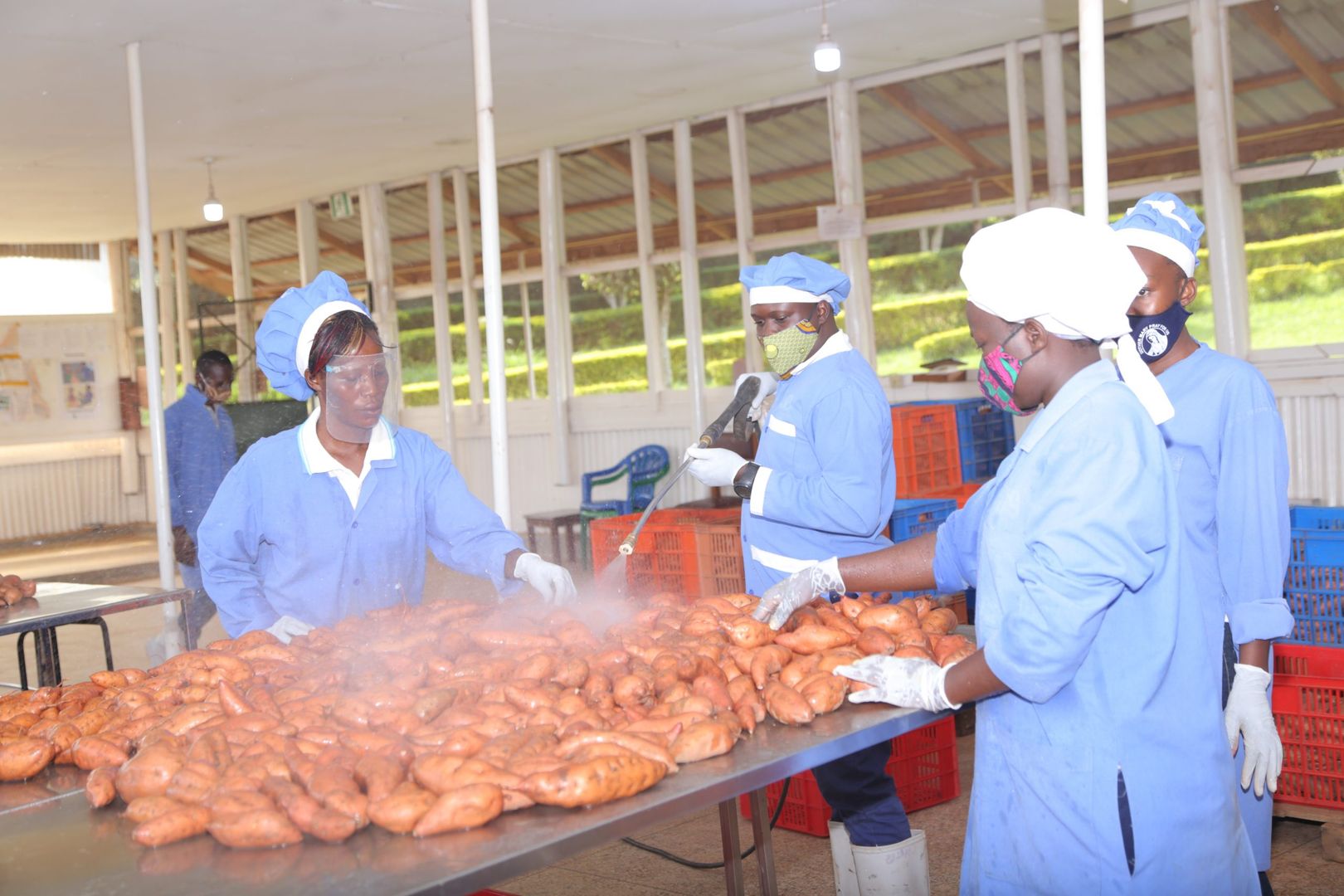Many refugee and host community farmers in Uganda have limited access to markets and therefore no or few opportunities to generate an income for themselves and their families. This makes poverty and despair a life condition – and one that is passed down from one generation to the next.
Through the Fresh Fruit Nexus Project refugee and host community farmers in Northern Uganda were trained and engaged to grow certified organic fruit and vegetables between 2019 and 2023.
The engaged in a process of product selection to meet the market preferences, with Europe being the primary market of choice. Local varieties of Orange Flesh Sweet Potatoes (OFSP) were found not suitable due to differences in taste and texture and a new variety (Beauregard) was acquired from Europe and adapted to the Ugandan climate. This new variety was successfully tested and commercial production by farmers commenced in the second season of 2020.
The project was funded by Danida Market Development Partnerships (DMPD) and DanChurchAid Uganda managed the project that also comprised Lishe, a Ugandan exporter of organic fruits and vegetables, and Nordic Fruit, a Danish company trading in fruit and veg.
The project was implemented in West Nile, which is ranked as Uganda’s second poorest region, it is the region most affected by climate change, and has experienced a large influx of refugees from South Sudan and DR Congo since 2016.
The achievements
The project’s aim was to contribute to a prosperous, peaceful, and ‘greener’ Uganda, where women, men, and youth can fulfill their aspirations and live a life in dignity.
In addition to growing organic fruit and veg 700 farmers from the communities were targeted through other initiatives – they were:
- trained in agroecology and enhanced knowledge of agroforestry practices.
- engaged in Village Savings and Loans Associations
- trained in financial literacy, business skills, gender, and human rights.
The Fresh Fruit Nexus documentary
About this project
Period: December 2018 – December 2023
Donor: Danida Market Development Partnerships (DMDP)

Funding: 17,125,000 DKK (11,500,000 DKK from Danida and 5,625,000 DKK from DCA and commercial partners)
Partners:
- Lishe
- JP Management
- Nordic Fruit
- WRI World Resources Institute

